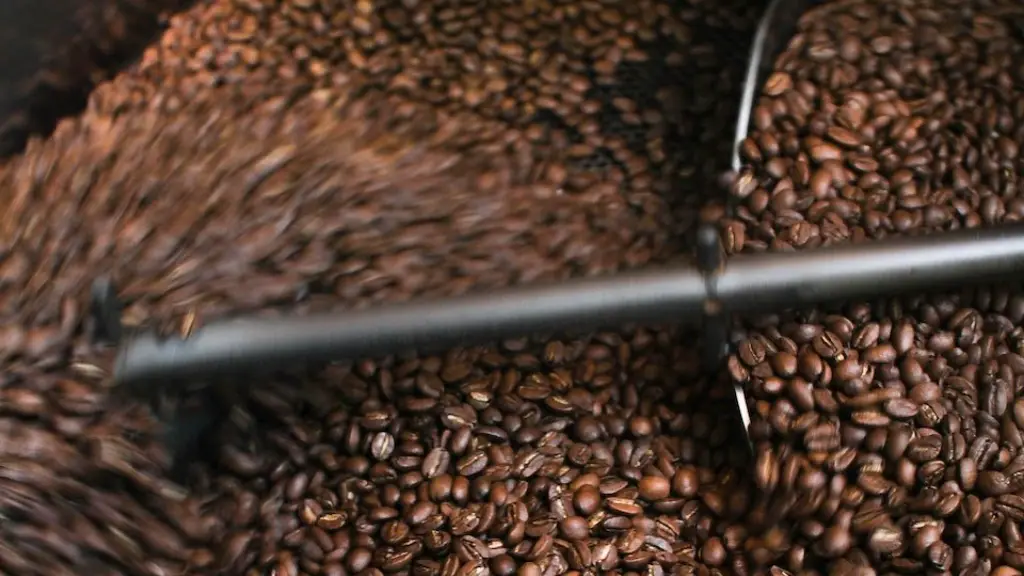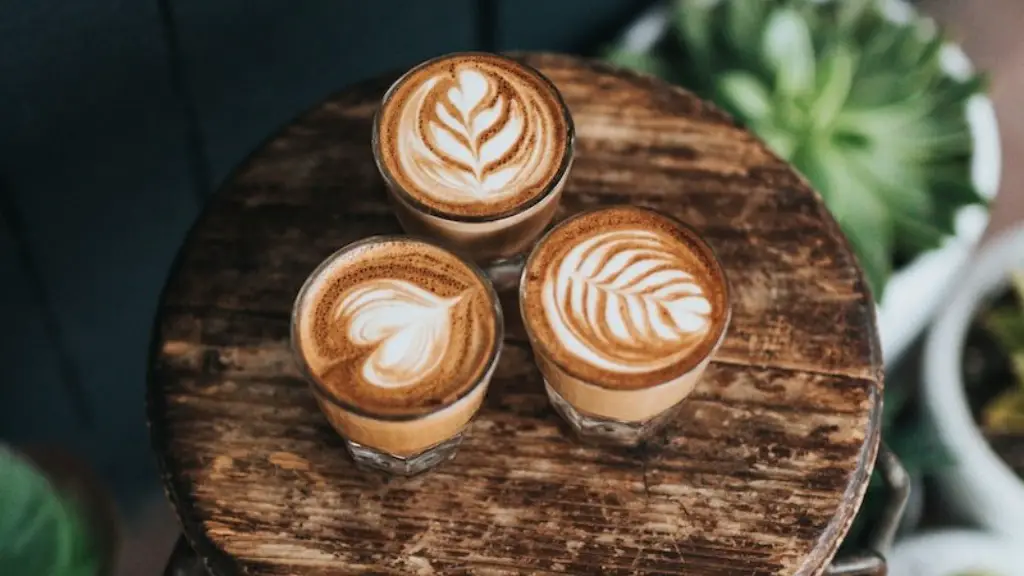Benefits of consuming coffee while fasting
Coffee has become an integral part of our modern lives. It’s now seemingly the answer to our groggy mornings, mid-afternoon lulls, and late-night cram sessions. But what about drinking it while fasting? It’s been a common practice for centuries and has grown to be embraced by many of today’s health and wellness communities. It’s said to bring a slew of health benefits, so it begs the question: should you drink coffee while fasting?
To answer this question, it’s important to understand the concept of intermittent fasting and the science of how caffeine affects the body. Intermittent fasting is a type of fasting done on a regular basis, usually in cycles of a few hours to a few days, with the goal of taking advantage of the body’s natural ability to enter a state of “cleanse” and “repair” in a shorter period of time. By eating larger portions once or twice a day, this allows the body to enter a fat burning state and use its own energy stores more efficiently.
One of the primary benefits that drinking coffee while fasting is said to offer is appetite suppression. In turn, this can make the process of intermittent fasting easier by removing the need to constantly feel hunger and cravings. Studies have shown that caffeine causes an increase in catecholamines, which are hormones that signal the body to burn fat stores for energy.
Caffeine has also been found to increase alertness, focus, and energy levels. This is especially beneficial for anyone working out during a fast because it can help to maintain performance levels and endurance. As a stimulant, it can also boost metabolism, which will help to promote weight loss.
However, it is important to note that not everyone is going to benefit from drinking coffee during their fast. Some people may experience side effects such as headaches, jitters, and restlessness — especially if they are unaccustomed to caffeine. It is also important to exercise caution and moderation when introducing caffeine into the fasting equation, as it can easily become a crutch and keep the body from reaping all of the benefits that fasting has to offer.
Implications of consuming coffee while fasting
It’s important to consider both the benefits and implications of consuming coffee while fasting. Most importantly, it’s important to understand the impact of caffeine on the body. It can cause increased alertness and reduce hunger levels, but it can also lead to jitters, restlessness, migraines, sleeplessness, and dehydration if consumed in excess. That said, it’s important to consult with a medical professional before making any drastic changes to one’s diet or lifestyle, as they may be able to provide more insights and guidance.
It’s also important to consider that while coffee is not intrinsically “unhealthy”, if it is a regular part of one’s diet, it’s best to be aware of what goes into each cup. This means being mindful of the amount of added sweeteners and milk, as these can add a lot of extra calories. Additionally, drinking coffee during a fast means foregoing other sources of nutrition such as protein, vitamins, and minerals that could otherwise be provided from meals during that time.
That said, it’s also important to recognize that coffee is by no means necessary for fasting. There are many other drinks and foods available to help curb hunger, provide energy, and support overall wellness. Water is always a great option, and herbal teas with added fruits and flavors can help to refresh and invigorate one’s taste buds.
Effects of consuming coffee while fasting
When consumed in moderation, drinking coffee while fasting can produce some great effects. It can help to focus and increase alertness, boost metabolism and aid in the process of fat burning, and help to reduce cravings. Plus, it can be a great way to kickstart the day or add excitement to an otherwise uninspiring fast.
But, it’s important to point out that these effects are not exclusive to coffee consumption. A balanced diet can provide the body with all the nutrients it needs to stay energized and healthy. Additionally, one should be mindful of how much caffeine they are consuming and recognize any potential side effects.
It’s also important to recognize that the effects of drinking coffee while fasting may vary from person to person. While some may find the effects to be beneficial, others may experience the opposite. Again, it is best to consult with a medical professional before making any drastic changes to one’s diet and lifestyle.
Strategies for consuming coffee while fasting
When it comes to consuming coffee while fasting, it’s important to practice moderation. Coffee can provide a great boost of energy and alertness if consumed in moderation, but it’s important to recognize the potential side effects of overdoing it. Whether it be through headaches, jitters, or a disturbed sleep pattern, consuming too much caffeine can have negative repercussions — making it essential to exercise caution.
As mentioned previously, water is an excellent and essential substitute to coffee. If opting to drink coffee as part of the fast, be sure to limit the amount. Additionally, look for ways to add nutrition to the coffee. Adding milk, creamers, and natural sweeteners like honey or coconut sugar can add flavour, but also add some extra nutrition. Coffee can be a great tool for the intermittent fasting process, it just needs to be consumed responsibly.
Analysis of coffee’s role in fasting
The bottom line is that coffee can play an incredibly beneficial role in the process of fasting. It can help to give us a boost of energy and alertness and aid in the process of fat burning. But, it’s also important to remember that it’s not essential for fasting and it’s important to recognize and exercise caution when it comes to consuming coffee while fasting.
In the end, it’s essential to understand that everyone is different. Some may find great benefit in the moderate consumption of coffee while fasting, whereas others may experience negative repercussions. It’s always best to consult with a medical professional before making any drastic changes to one’s diet and lifestyle.
Alternate strategies for caffeine consumption
If looking to avoid the consumption of coffee while fasting, there are still plenty of other strategies available to give the body an energy boost. Many vitamin and energy supplements are available to supplement the nutrition that one could be receiving from meals during their fasting window. Additionally, herbal teas can be a great substitute for coffee, as they can add flavour, some additional nutrition, and reduced levels of caffeine.
For those who want the satisfaction of a cup of joe without the stimulating effects of caffeine, instant decaf coffee is an excellent option. Decaffeinated coffee still contains small amounts of caffeine, but is significantly lower than regular coffee. But, if looking to cut out caffeine altogether, there are plenty of caffeine-free options available such as chicory root coffee, dandelion root tea, and matcha.
Finally, green tea is becoming increasingly popular as a natural stimulant that can help provide sustained energy and alertness. It’s high in antioxidants and beneficial micronutrients, as well as being low in calories. Furthermore, it contains a small amount of caffeine that is said to be less acidic and easier to digest than regular coffee, making it a great alternative for those looking for a caffeine-free option.
Other beverages to consume while fasting
When considering beverages to consume while fasting, it’s important to remember that water is essential. It helps to keep the body hydrated, which is essential for energy and overall health. Additionally, adding in some freshly squeezed citrus fruits or cucumber slices to create a flavoured water can help to add some extra flavour and additional nutrients.
Smoothies can also be a great way to get in some extra nutrition while fasting without breaking the fast. Many diets like a vegan or keto diet can provide greater insight into what healthy ingredients can go into a smoothie, but here are a few ideas to get started: almond milk, berries, coconut, chia or flax seeds, spinach, and avocado.
Another great option for a fast-friendly beverage is bone broth. Rich in collagen and amino acids, it’s said to help promote gut health and support joint health. Additionally, with it’s creamy, comforting consistency, it can be an excellent substitute for a regular cup of coffee.
It’s also important to remember the occasional treat. Plant-based milks such as coconut and almond milks can be added to herbal teas for indulging flavour. Try these with some natural sweeteners such as honey or coconut sugar to add some extra sweetness.





